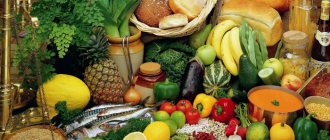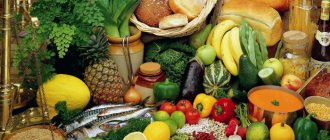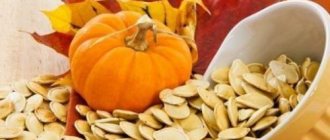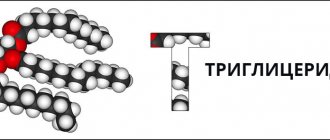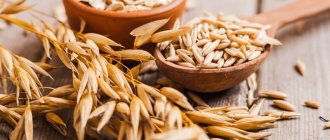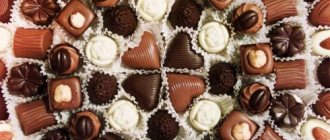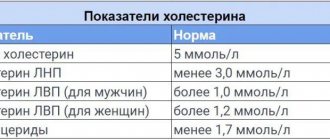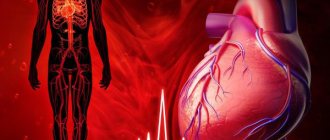General rules
Elevated blood cholesterol levels are a risk factor for atherosclerosis.
This fat-like substance is necessary for the formation of enzymes, hormones and other things. However, when its metabolism is disrupted and its level in the blood is high, irreversible changes develop in the wall of blood vessels - atherosclerosis, which is dangerous for its complications (heart attack, stroke, disruption of the blood supply to various organs).
Dangerous in terms of the development of atherosclerosis is considered to be an imbalance between fractions - low-density lipoproteins LDL and high-density lipoproteins (HDL). The former have an atherogenic effect and their high content is a risk of cardiovascular diseases. High-density (“good”) cholesterol is produced by the body. Moderate physical activity promotes its production and at the same time reduces the accumulation of harmful substances, which only comes from foods.
Nutritional therapy has been developed to reduce cholesterol levels. A diet for lowering blood cholesterol levels can be used in the treatment and prevention of diseases - it is suitable for people who monitor their health. Its goal is to improve lipid metabolism and weight loss. The main principle of this diet is the reduction of animal fat, which we get from meat, fatty dairy products, and simple carbohydrates. Polyunsaturated fats (their sources are vegetable oils and nuts), fiber and complex carbohydrates (we get them from vegetables, grains, bran) should predominate in the diet. It is the large amount of fiber that helps remove excess cholesterol from the gastrointestinal tract. The protein content in this therapeutic diet is within normal limits, and can be obtained by consuming a variety of legumes and lean meats.
The amount of bread is no more than 200 g per day; the use of dietary bran bread is also allowed. Salt and the amount of liquid consumed are limited to 1.2 liters. Dishes must be prepared without salt, but it is allowed to add salt to prepared food on the table. Vegetables are eaten raw or stewed, and it is better to boil (bake) meat and fish to reduce fat in the diet. It is important to eat plenty of vegetables at dinner. Daily calorie content is 1400-1500 kcal.
Basic principles of nutrition for high blood cholesterol:
- Grains, vegetables and fruits, containing complex carbohydrates and high amounts of fiber, should make up about 60% of the diet. You need to eat 400 g of vegetables daily (one third fresh) and 200 g of grain products.
- The predominance of vegetable oils in the diet.
- Moderate consumption of permitted dairy products.
- Diet for high blood cholesterol includes fish, chicken and turkey, which are the foods of choice, and lean beef should take second place in the diet.
- The amount of salt is minimal.
- 2-3 eggs per week (unlimited protein).
- Avoid feeling hungry (have fruit snacks on time).
The diet for high cholesterol in women is no different from that for men and the general principles of nutrition remain the same. Total cholesterol in women and men should be no more than 5.2 mmol/l; a figure of 6.19 mmol/l is already considered significantly increased. HDL in women should be at least 0.9 mmol/l and up to 1.9 mmol/l; in men this figure is different - from 0.7 to 1.7 mmol/l.
The onset of menopause has an adverse effect on cholesterol metabolism and is explained by the fact that with the onset of menopause, estrogen synthesis decreases, and it regulates the production of “good” cholesterol. The increase in “bad” is facilitated by a woman’s sedentary lifestyle, overeating and consumption of fatty and high-calorie foods.
Diet for women with high cholesterol should contain as much as possible plant foods rich in phytosterols, which control and reduce the level of bad cholesterol:
- wheat germ;
- sesame seeds;
- sunflower seeds;
- flax seed;
- olive oil;
- grape seed oil;
- avocado.
Vegetables and fruits containing pectin are no less useful: apples, citrus fruits, beets, watermelons and natural vegetable juices. Remember that all purple and red fruits and vegetables contain polyphenols that stimulate the production of good cholesterol: blueberries, strawberries, raspberries, cranberries, cranberry juice, chokeberries, lingonberries, pomegranate, purple and red grapes, plums, eggplants. Green leafy salads and vegetables are also useful: cabbage, lettuce, spinach, sorrel, artichoke and parsley, dill and green onions available to everyone.
It is imperative to include legumes in your diet, which, due to their high fiber content, will remove harmful cholesterol from the intestines. In terms of protein content, they can replace meat.
It is beneficial for older women to consume soy products containing phytoestrogens. Do not forget about proper culinary processing of meat and fish - a minimum of fat when cooking - it is best to bake in the oven, in pots or steamed.
Considering women's craving for sweets, it will be very difficult to give up sweet cream products, chocolate and sweets, pastries, cookies, waffles and limit yourself in sugar. But this must be done. Fatty meat should also disappear from the diet; you will have to give up processed meat (sausage, boiled pork). Pork, lard and bacon are prohibited. Don't forget about the need for physical activity. All this will only bring benefits - your tests will normalize, your weight will drop, and you will consider yourself attractive.
High cholesterol is often observed in diseases of the internal organs and endocrine system: nephritis, hypothyroidism, obesity, diabetes mellitus. This combined pathology requires a special approach to nutrition and more serious treatment. In each case, the issue is resolved individually and therapeutic nutrition is prescribed for the underlying disease. For example, what diet is indicated for high cholesterol due to kidney disease? In this case, you need to follow Table No. 7 and its variations. Diet 7 is prescribed for chronic kidney disease and, in addition to limiting salt and the amount of liquid you drink, it involves excluding foods rich in cholesterol (kidneys, liver, egg yolks, brains).
Horse sorrel
How to assemble. Sorrel roots are harvested. They are dug up in spring or autumn, cleared of soil and above-ground parts of the plant, washed in running water, cut into pieces and dried in the shade or in dryers at a temperature of 50–60 °C, periodically turning the raw materials over.
Recipe. The infusion is prepared at the rate of 1 tbsp. a spoonful of crushed roots per glass of water. Take 1 tbsp. spoon 3-5 times a day. Please note that sorrel is contraindicated in patients predisposed to the formation of oxalate kidney stones.
Horse sorrel: properties, benefits and medicinal uses Read more
Authorized Products
Proper nutrition for high cholesterol should become the norm. What should it be? First of all, you need to exclude meat broths - prepare vegetarian soups; if this is difficult and unusual for you, then you can use weak secondary broth for first courses and carefully skim off the fat. Use potatoes in minimal quantities and it is better to prepare combined vegetable soups, cabbage soup and borscht.
Cabbage for high cholesterol Meat and poultry should be taken of lean types, poultry skin is unacceptable, additional fat should be trimmed from meat. Since the diet involves limiting fat, the meat should be boiled or baked without adding sour cream, mayonnaise or any fat. Use vegetables as a side dish, not cereal. It is better to cook them for breakfast (oatmeal, buckwheat and brown rice).
Cabbage (all types), carrots, zucchini, pumpkin, eggplant, or salads made from fresh vegetables and green peas will help lower cholesterol levels. The total amount of vegetables eaten per day is at least 400g.
Use virgin vegetable oils to season ready-made dishes. Flaxseed oil, a leader in the content of omega-3 fatty acids, which regulate the production of beneficial lipids, is useful in this regard.
Lowering cholesterol levels can be achieved by introducing low-fat sea fish into the diet, but the consumption of meat (chicken) should still be limited to once a week. When it comes to fish, you should choose dietary varieties: hake, haddock, blue whiting, navaga, pollock, pollock.
Bread made from rye, grain flour and bran is allowed. You can use yeast-free bread (with bran, with flax seeds) for snacks and first courses. Milk and fermented milk products are allowed only in low fat content and in limited quantities. Green tea and weak coffee with milk and without sugar, vegetable and fruit juices without sugar are allowed.
Black currant
How to assemble. The fruits and leaves of the plant are used. The leaves are harvested during flowering, the fruits are collected in dry weather, cleaned of impurities and dried indoors or in dryers, withering them at a temperature of 35–40 °C, then dried at 55–60 °C.
Recipe. An infusion of fruits is prepared at the rate of 2 tbsp. spoons of raw materials per 1 glass of water. Take 0.5–1 glass 2–3 times a day.
An infusion of leaves is prepared at the rate of 2–3 tbsp. tablespoons of crushed vegetable raw materials per 2 cups of water. Take ½ glass orally 3 times a day.
Black currant: properties, benefits and medicinal uses Read more
Table of permitted products
| Proteins, g | Fats, g | Carbohydrates, g | Calories, kcal | |
| Vegetables and greens | ||||
| eggplant | 1,2 | 0,1 | 4,5 | 24 |
| beans | 6,0 | 0,1 | 8,5 | 57 |
| zucchini | 0,6 | 0,3 | 4,6 | 24 |
| cabbage | 1,8 | 0,1 | 4,7 | 27 |
| broccoli | 3,0 | 0,4 | 5,2 | 28 |
| Brussels sprouts | 4,8 | 0,0 | 8,0 | 43 |
| cauliflower | 2,5 | 0,3 | 5,4 | 30 |
| green onion | 1,3 | 0,0 | 4,6 | 19 |
| bulb onions | 1,4 | 0,0 | 10,4 | 41 |
| carrot | 1,3 | 0,1 | 6,9 | 32 |
| cucumbers | 0,8 | 0,1 | 2,8 | 15 |
| squash | 0,6 | 0,1 | 4,3 | 19 |
| salad pepper | 1,3 | 0,0 | 5,3 | 27 |
| parsley | 3,7 | 0,4 | 7,6 | 47 |
| salad | 1,2 | 0,3 | 1,3 | 12 |
| beet | 1,5 | 0,1 | 8,8 | 40 |
| celery | 0,9 | 0,1 | 2,1 | 12 |
| soybeans | 34,9 | 17,3 | 17,3 | 381 |
| asparagus | 1,9 | 0,1 | 3,1 | 20 |
| tomatoes | 0,6 | 0,2 | 4,2 | 20 |
| Jerusalem artichoke | 2,1 | 0,1 | 12,8 | 61 |
| pumpkin | 1,3 | 0,3 | 7,7 | 28 |
| dill | 2,5 | 0,5 | 6,3 | 38 |
| beans | 7,8 | 0,5 | 21,5 | 123 |
| garlic | 6,5 | 0,5 | 29,9 | 143 |
| lentils | 24,0 | 1,5 | 42,7 | 284 |
| Fruits | ||||
| avocado | 2,0 | 20,0 | 7,4 | 208 |
| oranges | 0,9 | 0,2 | 8,1 | 36 |
| pomegranate | 0,9 | 0,0 | 13,9 | 52 |
| grapefruit | 0,7 | 0,2 | 6,5 | 29 |
| pears | 0,4 | 0,3 | 10,9 | 42 |
| lemons | 0,9 | 0,1 | 3,0 | 16 |
| mango | 0,5 | 0,3 | 11,5 | 67 |
| tangerines | 0,8 | 0,2 | 7,5 | 33 |
| nectarine | 0,9 | 0,2 | 11,8 | 48 |
| peaches | 0,9 | 0,1 | 11,3 | 46 |
| apples | 0,4 | 0,4 | 9,8 | 47 |
| Berries | ||||
| gooseberry | 0,7 | 0,2 | 12,0 | 43 |
| Red currants | 0,6 | 0,2 | 7,7 | 43 |
| black currant | 1,0 | 0,4 | 7,3 | 44 |
| Nuts and dried fruits | ||||
| nuts | 15,0 | 40,0 | 20,0 | 500 |
| almond | 18,6 | 57,7 | 16,2 | 645 |
| flax seeds | 18,3 | 42,2 | 28,9 | 534 |
| fenugreek seeds | 23,0 | 6,4 | 58,3 | 323 |
| sunflower seeds | 20,7 | 52,9 | 3,4 | 578 |
| Cereals and porridges | ||||
| buckwheat (kernel) | 12,6 | 3,3 | 62,1 | 313 |
| oat groats | 12,3 | 6,1 | 59,5 | 342 |
| cereals | 11,9 | 7,2 | 69,3 | 366 |
| wheat bran | 15,1 | 3,8 | 53,6 | 296 |
| Raw materials and seasonings | ||||
| basil | 2,5 | 0,6 | 4,3 | 27 |
| honey | 0,8 | 0,0 | 81,5 | 329 |
| Dairy | ||||
| kefir 0% | 3,0 | 0,1 | 3,8 | 30 |
| kefir 1% | 2,8 | 1,0 | 4,0 | 40 |
| Cheeses and cottage cheese | ||||
| cottage cheese 0.6% (low fat) | 18,0 | 0,6 | 1,8 | 88 |
| curd tofu | 8,1 | 4,2 | 0,6 | 73 |
| Meat products | ||||
| beef | 18,9 | 19,4 | 0,0 | 187 |
| Bird | ||||
| chicken fillet | 23,1 | 1,2 | 0,0 | 110 |
| turkey | 19,2 | 0,7 | 0,0 | 84 |
| Eggs | ||||
| eggs | 12,7 | 10,9 | 0,7 | 157 |
| Fish and seafood | ||||
| fish | 18,5 | 4,9 | 0,0 | 136 |
| seaweed | 0,8 | 5,1 | 0,0 | 49 |
| Oils and fats | ||||
| grape seed oil | 0,0 | 99,9 | 0,0 | 899 |
| linseed oil | 0,0 | 99,8 | 0,0 | 898 |
| olive oil | 0,0 | 99,8 | 0,0 | 898 |
| sunflower oil | 0,0 | 99,9 | 0,0 | 899 |
| Non-alcoholic drinks | ||||
| mineral water | 0,0 | 0,0 | 0,0 | — |
| instant chicory | 0,1 | 0,0 | 2,8 | 11 |
| green tea | 0,0 | 0,0 | 0,0 | — |
* data is per 100 g of product
Dill
How to assemble. Dill seeds are used. Dill fruits are harvested in the fall, when the plant and seeds become brown or yellow-brown in color. The stems with umbrellas are threshed, the seeds are cleaned of foreign impurities, dried and stored in a cool, dry place.
Recipe. The infusion is prepared at the rate of 1 tbsp. spoon of herbs or seeds per 1.5 cups of water.
Dill seeds: properties, benefits and medicinal uses Read more
Fully or partially limited products
Excluded: pork, cooking fats, refined vegetable oil, margarine, butter, duck and goose meat, offal (kidneys, brains, liver), sausages and smoked meats. Fatty fish, fish roe (contains a large amount of cholesterol), crayfish, shrimp, crabs and any canned fish, including cod liver, are prohibited.
You should not consume puff pastry and pastry products, highly extractive meat, fish, or mushroom broths. Cream, fatty cottage cheese and sour cream are not allowed in the diet. Prohibition of consumption of chocolate, full-fat ice cream, products with cream and products with palm and coconut oil. Mayonnaise and ketchup should not be used as sauces.
Limit:
- beef (1-2 times a week);
- red fish;
- egg yolks;
- potato;
- fatty cheeses;
- nuts;
- buckwheat;
- honey.
Sweet clover
How to assemble. For medicinal purposes, sweet clover grass is used, which is collected at the beginning of flowering. The upper part of the stem and side shoots are cut off with a knife or sickle and dried in dry weather outdoors in the shade or in attics, well-ventilated areas. After drying, the grass is threshed.
Recipe. The infusion is prepared at the rate of 2 teaspoons of herbs per 1.5 glasses of water. Take 3 times a day 20–30 minutes before meals.
Sweet clover: properties, benefits and medicinal uses Read more
Table of prohibited products
| Proteins, g | Fats, g | Carbohydrates, g | Calories, kcal | |
| Fruits | ||||
| bananas | 1,5 | 0,2 | 21,8 | 95 |
| Nuts and dried fruits | ||||
| raisin | 2,9 | 0,6 | 66,0 | 264 |
| Cereals and porridges | ||||
| semolina | 10,3 | 1,0 | 73,3 | 328 |
| white rice | 6,7 | 0,7 | 78,9 | 344 |
| Flour and pasta | ||||
| pasta | 10,4 | 1,1 | 69,7 | 337 |
| Bakery products | ||||
| bagels | 16,0 | 1,0 | 70,0 | 336 |
| bagels | 16,0 | 1,0 | 70,0 | 336 |
| crackers | 11,2 | 1,4 | 72,2 | 331 |
| Confectionery | ||||
| jam | 0,3 | 0,2 | 63,0 | 263 |
| jam | 0,3 | 0,1 | 56,0 | 238 |
| candies | 4,3 | 19,8 | 67,5 | 453 |
| pastry cream | 0,2 | 26,0 | 16,5 | 300 |
| Ice cream | ||||
| ice cream | 3,7 | 6,9 | 22,1 | 189 |
| Cakes | ||||
| cake | 4,4 | 23,4 | 45,2 | 407 |
| Chocolate | ||||
| chocolate | 5,4 | 35,3 | 56,5 | 544 |
| Raw materials and seasonings | ||||
| ketchup | 1,8 | 1,0 | 22,2 | 93 |
| mayonnaise | 2,4 | 67,0 | 3,9 | 627 |
| Dairy | ||||
| cream | 2,8 | 20,0 | 3,7 | 205 |
| sour cream 30% | 2,4 | 30,0 | 3,1 | 294 |
| sour cream 40% (fat) | 2,4 | 40,0 | 2,6 | 381 |
| Cheeses and cottage cheese | ||||
| cheese | 24,1 | 29,5 | 0,3 | 363 |
| cottage cheese 18% (fat) | 14,0 | 18,0 | 2,8 | 232 |
| Meat products | ||||
| pork | 16,0 | 21,6 | 0,0 | 259 |
| pork liver | 18,8 | 3,6 | 0,0 | 108 |
| pork kidneys | 13,0 | 3,1 | 0,0 | 80 |
| pork fat | 1,4 | 92,8 | 0,0 | 841 |
| salo | 2,4 | 89,0 | 0,0 | 797 |
| beef liver | 17,4 | 3,1 | 0,0 | 98 |
| beef kidneys | 12,5 | 1,8 | 0,0 | 66 |
| beef brains | 9,5 | 9,5 | 0,0 | 124 |
| mutton | 15,6 | 16,3 | 0,0 | 209 |
| Sausages | ||||
| smoked sausage | 16,2 | 44,6 | 0,0 | 466 |
| smoked sausage | 9,9 | 63,2 | 0,3 | 608 |
| sausages | 10,1 | 31,6 | 1,9 | 332 |
| sausages | 12,3 | 25,3 | 0,0 | 277 |
| Bird | ||||
| smoked chicken | 27,5 | 8,2 | 0,0 | 184 |
| duck | 16,5 | 61,2 | 0,0 | 346 |
| smoked duck | 19,0 | 28,4 | 0,0 | 337 |
| goose | 16,1 | 33,3 | 0,0 | 364 |
| Fish and seafood | ||||
| smoked fish | 26,8 | 9,9 | 0,0 | 196 |
| salted fish | 19,2 | 2,0 | 0,0 | 190 |
| Red caviar | 32,0 | 15,0 | 0,0 | 263 |
| black caviar | 28,0 | 9,7 | 0,0 | 203 |
| squid | 21,2 | 2,8 | 2,0 | 122 |
| shrimps | 22,0 | 1,0 | 0,0 | 97 |
| salmon | 19,8 | 6,3 | 0,0 | 142 |
| sturgeon | 16,4 | 10,9 | 0,0 | 163 |
| canned fish | 17,5 | 2,0 | 0,0 | 88 |
| semi-finished fish products | 12,5 | 6,7 | 14,7 | 209 |
| sardine | 20,6 | 9,6 | — | 169 |
| mackerel | 18,0 | 13,2 | 0,0 | 191 |
| cod (liver in oil) | 4,2 | 65,7 | 1,2 | 613 |
| boiled oysters | 14,0 | 3,0 | — | 95 |
| fresh oysters | 14,0 | 6,0 | 0,3 | 95 |
| Oils and fats | ||||
| butter | 0,5 | 82,5 | 0,8 | 748 |
| creamy margarine | 0,5 | 82,0 | 0,0 | 745 |
| coconut oil | 0,0 | 99,9 | 0,0 | 899 |
| palm oil | 0,0 | 99,9 | 0,0 | 899 |
| rendered beef fat | 0,0 | 99,7 | 0,0 | 897 |
| cooking fat | 0,0 | 99,7 | 0,0 | 897 |
| rendered pork fat | 0,0 | 99,6 | 0,0 | 896 |
| Non-alcoholic drinks | ||||
| cola | 0,0 | 0,0 | 10,4 | 42 |
| lemonade | 0,0 | 0,0 | 6,4 | 26 |
| Pepsi | 0,0 | 0,0 | 8,7 | 38 |
| sprite | 0,1 | 0,0 | 7,0 | 29 |
*data is per 100 g of product
Preparing the infusion
Place the required amount of plant material in an enamel bowl, add boiled water and bring to a boil. Boil over low heat for 10–15 minutes, leave for at least 45 minutes until completely cooled, then filter, squeeze out the remaining plant mass and add water until the original volume of infusion is obtained.
Our information
Cholesterol can be useful and harmful. The first helps build new cells and is needed for the production of certain hormones. But the harmful one is deposited on the walls of blood vessels, disrupts blood circulation and leads to atherosclerosis. Two-thirds of cholesterol is produced by the liver, and the rest comes from food.
Menu (Power Mode)
The cholesterol diet menu is designed for 5 meals a day. Since you should not allow yourself to feel hungry during the day or in the evening, you are allowed to eat an apple, grapefruit, carrots or drink a fermented milk product. A sample menu for several days might look like this:
First option
| Breakfast |
|
| Lunch |
|
| Dinner |
|
| Afternoon snack |
|
| Dinner |
|
Second option
| Breakfast |
|
| Lunch |
|
| Dinner |
|
| Afternoon snack |
|
| Dinner |
|
Third option
| Breakfast |
|
| Lunch |
|
| Dinner |
|
| Afternoon snack |
|
| Dinner |
|
Below is a table of low-cholesterol foods that can be included in your diet.
| Products name | Featured | Prohibited |
| Fish | Lean sea fish (hake, blue whiting, pollock, navaga, pollock, haddock) and pike three times a week. | Salmon, mackerel, sardine, eel, mackerel, herring, oysters, caviar, shrimp, prepared fish, river fish in limited quantities. |
| Eggs | Up to 3 pieces per week. | Egg yolk. |
| Fats | Sunflower, corn, olive or soybean oils, up to 2 tablespoons per day. | Lard, margarine, palm and coconut oil, butter, animal fat. |
| Meat | Veal, rabbit, turkey, chicken, lean beef once or twice a week. The bird is allowed without skin. | Pork, fatty beef, fatty lamb, duck and goose meat, sausages, liver, kidneys, brain pates, sausages, sausages. |
| Dairy | Skim milk, low-fat kefir, yogurt, cheeses up to 20%, low-fat cottage cheese. | Full-fat cottage cheese, sour cream, cream, ice cream, curd mass, condensed milk, processed cheese. |
| Vegetables | Fresh and frozen, corn and beans. | Potatoes and potato snacks. |
| Fruits | Everything except banana and grapes, as well as dried fruits. | Sugared fruits, pistachios and peanuts, hazelnuts. |
| Cereals | Whole grain bread, brown rice, oatmeal, whole grain pasta. | White rice, semolina, limit buckwheat. |
| Bakery | Oatmeal cookies, bread rolls, dry cookies, “Fitness” cookies. | Biscuits, pastries, rolls, cakes, puff pastry products. |
| Sweets | Low-fat puddings, jellies without added sugar, fruit ice cream. | Chocolate, pastry cream, toffee, marmalade, pastille, sugar, syrups. |
| Beverages | Sugar-free juices, green tea, weak coffee, still mineral water. | Cocoa with milk, coffee with cream, alcoholic and sweet carbonated drinks. |
Hawthorn
How to assemble. Flowers and fruits of all types of hawthorn are used. Flowers are collected in dry weather at the beginning of flowering. Dry in dryers or in well-ventilated areas, spreading them in a thin layer on cloth or paper. The fruits are collected when ripe, dried in dryers at a temperature of 55–60 °C, after drying, the stalks are separated, and spoiled fruits are thrown away.
Recipe. The infusion is prepared at the rate of 1 tbsp. spoon of flowers or 2 tbsp. spoons of crushed fruits for 1.5 cups of water. Take during the day in 3 doses 30 minutes before meals.
Heart berry. What are the benefits of hawthorn and what can be prepared from it Read more
Why is it necessary to clean vessels?
Blockage of blood vessels with cholesterol occurs due to regular consumption of fried, spice-rich foods and fatty foods. Other negative factors affecting arterial contamination are the effects of industrial and household toxins, non-compliance with the rest regime, smoking and alcohol, and a sedentary lifestyle.
Untimely cleaning of the vascular system is fraught with the development of atherosclerosis, which, in turn, is the cause of:
- blocking normal blood circulation in the head and neck area,
- the appearance of chronic headaches and dizziness,
- constant fatigue, apathy, depression,
- increased blood pressure,
- early strokes and heart attacks.
Other Important Recommendations
At the moment, no medical community dares to recommend natural remedies as the only method of treatment. It will take several more (perhaps even decades) years for clinical observational data to become firmly established in the health care systems of various countries. At the moment, the treatment regimen for dyslipidemia cannot be done without drugs and is presented as follows:
- Lifestyle changes. Involves regular walks in the fresh air (parks, coniferous forests). The recommended number of steps per day is 8,000 (according to the World Health Organization).
- Quitting bad habits (alcohol, smoking, drugs).
- Body weight control. With a weight loss of 10 kg, the risk of sudden vascular death drops by 20%, and in the presence of diabetes mellitus - by 30%. A decrease in body weight by 15 kg has a pronounced effect on systolic and diastolic blood pressure - a decrease of 10 mm. rt. Art. and by 20 mm. rt. Art. respectively.
- Prescription of medications (fibrates, statins, bile acid sequestrants, vitamin PP preparations).
- Follow a diet limiting fatty, spicy, salty, and sweet foods.
- In case of severe dyslipidemia, prevention of complications (Aspirin, Xarelta, etc.).
What else can I do to lower it?
In addition to using traditional medicine and proper nutrition, to reduce the amount of bad cholesterol you need to move more, regularly go for jogs or walks, and do exercises. Bad habits can increase cholesterol levels. Smoking and drinking alcohol should be stopped. If this is difficult to do, then at least try to reduce their consumption to the minimum possible amount.
Patients should visit a doctor regularly and follow all his recommendations.
Recipes with garlic
Garlic-based folk remedies are invariably popular due to their high effectiveness. With its help, you can not only thoroughly clean the blood vessels, but also rejuvenate the body as a whole.
Attention! Due to the high content of essential oils, garlic products are contraindicated for gastritis, stomach ulcers, pancreatitis, epilepsy, pregnancy and kidney dysfunction.
Garlic tincture
200 g of peeled garlic cloves are crushed using a meat grinder. The homogeneous mass is placed in a clean glass container and filled with alcohol or vodka. Then close the lid tightly and leave for 2 weeks in a dark place. The criterion for the readiness of the tincture is that it acquires a rich green color with a characteristic smell of garlic.
After the allotted period, the liquid is filtered and left under the lid for another three days until completely discolored. Now it can be poured into another, more suitable container.
The recipe must be used strictly according to the following diagram:
- Day one - one drop before breakfast, two before lunch and three before dinner.
- Day two - four drops before breakfast, five before lunch, six before dinner.
- Day three - seven drops before breakfast, eight before lunch and nine before dinner.
With each subsequent day, the amount of product used increases by one drop. Starting from the sixth day, the volume must be reduced, taking 1 drop for each dose.
Important! It is recommended to dilute the product in a small amount of warm water or milk.
A course on cleansing blood vessels using garlic is allowed to be carried out no more than once a year, preferably in the autumn. If any signs of discomfort in the stomach (heartburn, pain), increased heart rate and general malaise appear, you should stop taking the drug and consult a doctor.
Review Reviews
According to the majority of people struggling with excess weight and the formation of cholesterol plaques, the use of traditional methods of treatment, along with those offered by modern medicine, brings positive results. The most effective are mixtures of honey, garlic and lemon along with the peel, as well as flaxseed oil, infusions and decoctions of dill and other herbs for high cholesterol, most of which are listed above.
The anti-cholesterol properties of red clover are recognized in reviews as one of the most medicinal and useful. To reduce cholesterol levels, follow a special diet, eat right, consume exclusively foods that improve liver function, and herbs to lower cholesterol.
